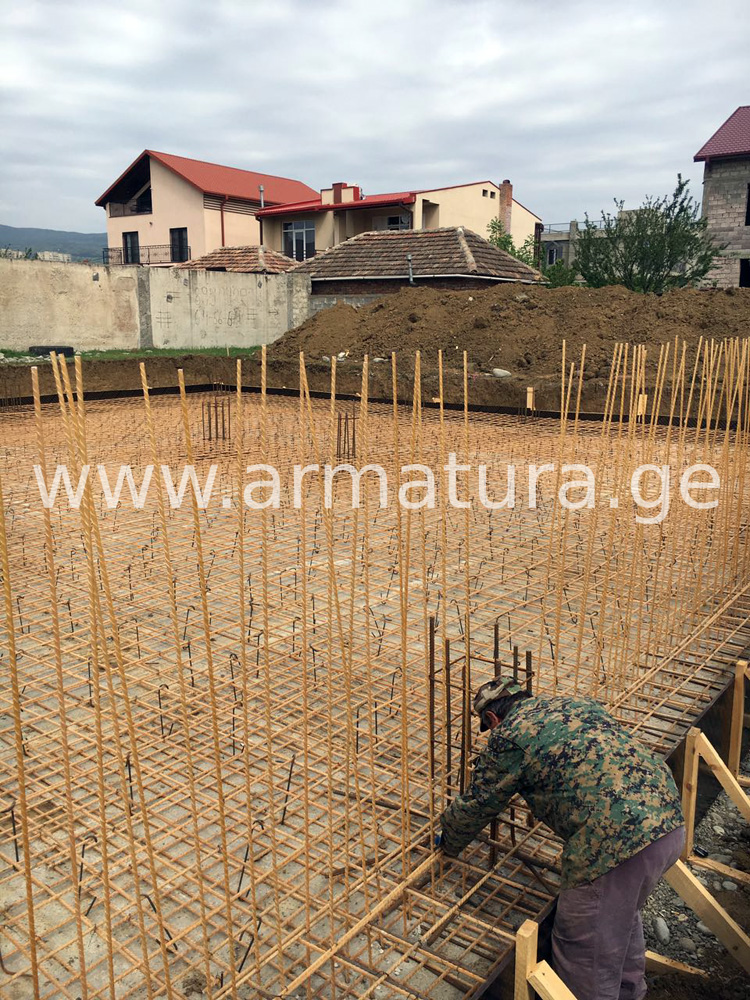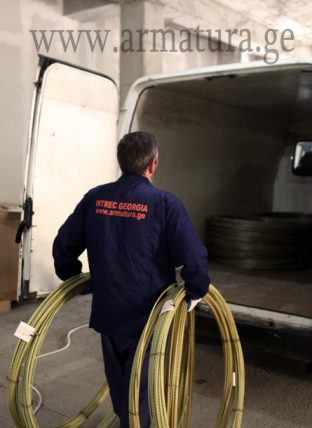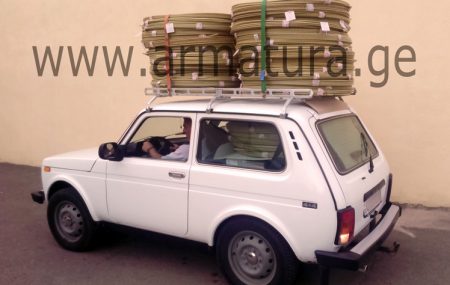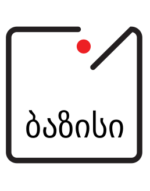Savings
When making a choice between metal reinforcement and fiberglass reinforcement, the amount of savings is often miscalculated. They are mostly limited to the price of a longitudinal meter. Just comparing prices, of course, does not show the full extent of the savings. When buying fiberglass reinforcement “Basis” you are save both on price and transportation costs, loading / unloading of the reinforcement, and so on
The real savings are much more than just the difference between the longitudinal meter prices.
Let’s roughly try to calculate your savings if you use the fiberglass reinforcement that we offer instead of the regular metal analogues.
For example, we want to tile 100 sq/m. For simplicity, let’s assume that the dimensions are 10m long and 10m wide.
Let’s suppose we had to use metal reinforcement:
Metal reinforcement F12 should be woven with 20 cm partitions (steps) in both directions and in both the upper and lower layers.
When weaving with 20 cm partition, 10 meters of longitudinal reinforcement is required per 1 sq/m. So we need 1000 longitudinal meters in one layer, which means we will need 2000 longitudinal meters of reinforcement in both layers respectively.
If you use fiberglass reinforcement you will need:
Fiberglass reinforcement “Basis” F10, which is similarly woven with 20 cm partitions (steps) in both directions and in the upper and lower zone. In the case of similar weaving, of course, we will need the same number of meters of fiberglass reinforcement, i.e. 2000 m.
(Note that the composite reinforcement is about 2.5-3 times stronger in tension than its metal analog. Therefore, you may use fiberglass reinforcement of relatively small diameter instead of the metal analogue to obtain the same strength).
As already mentioned, in the case of both reinforcements we will need 2000 longitudinal meters of reinforcement.
Let’s calculate the savings if you use fiberglass reinforcement.

Savings due to the cost of reinforcement
The price of the longitudinal meter of F10 fiberglass reinforcement is 1.57 GEL. Accordingly, 2000 meters will cost 1.57 × 2000 = 3140 GEL.
Now let’s calculate the cost of F12 for metal reinforcement. For today, the price of one ton of metal reinforcement is about 800$. Considering that there are 1126 meters of metal reinforcement in 1 ton, the cost per longitudinal meter is 800/1126 = 0.71$. This equals about 2.34 GEL. Accordingly, the cost of 2000 meters will be 2.34 × 2000 = GEL 4680.
Thus, we found out that when tiling 100 square meters, we will save 4680-3140 = 1540 GEL by using MPa reinforcing “Basis” only due to the difference in the price of the longitudinal meter unit.
(Prices are valid. As of the date of text uploading (01.03.2021) the price of one longitudinal meter of metal reinforcement F12 was GEL 2.34. Price of fiberglass reinforcement F10 – 1.57 GEL)
Saving on loading / unloading
One meter Ф12 metal armature weighs 0.89 kg. Respectively, 2000 * 0.89 = 1780kg. It is quite difficult to imagine weather anyone would be able to load a car with this amount of reinforcement, i.e. it’s necessary to use special vehicles, equipment or additional manpower to load the purchased reinforcement, deliver and unload it at the destination, which of course is connected with financial outlays.
One meter of fiberglass (composite) reinforcement “basis” F10 weighs 0.12 kg, respectively 2000 * 0.12 = 240 kg. If we consider that composite armature can be purchased in coils (see photo) and the weight of one bundle (100 m) is 12 kg, it means that the existing reinforcement of 2000 m can be transported without special expensive transport and its loading and unloading does not require special equipment and additional works.
As a result, we save money on transportation, we save costs on loading and unloading, and therefore time.

Saving on transportation
One meter of metal reinforcement F12 weighs 0.89 kg. Accordingly, 2000 * 0.89 = 1780 kg. If we consider that the length of each reinforcing rod is 11.7 meters, and then it turns out that for its transportation, we need a special car, barge or trailer, or heavy transport, which is connected with financial outlays.
One meter of fiberglass fittings “Basis” F10 weighs 0.12 kg, respectively 2000 * 0.75 = 240 kg. Fiberglass reinforcement can be purchased in coil-reinforced tubing. This means that you can transport it on your own vehicle. Mainly, transport costs account no expenses.

Saving on waste
As we already know, fiberglass reinforcement “Basis” can be purchased in 100 m long coils (bunches), which would be an ideal option in our case. 10 pieces of 10 m long will be opened and cut off. That is, absolutely no scraps and waste.
The length of the metal reinforcement rod has a standard length of 11.7 meters. This means that in our case we will need to shorten them, i.e. we will need to cut 1.7 meters on each of them. And if we take into account that we need 200 pieces of 10-meter (2000m) reinforcement, we get that 200p * 1.7m = 340m of reinforcement will be unprofitable, and so we will have to buy more with 340 m of reinforcement.
As a result, we get savings due to the absence of waste.
Savings in the work process
Considering that “Basis” reinforcement is presented in “coils”, it is lightweight, which greatly simplifies its transportation to the construction site, it is easy to cut to size with a so-called barbed wire, and so on, all this will save us time and money on all possible stages of the reinforcing.



